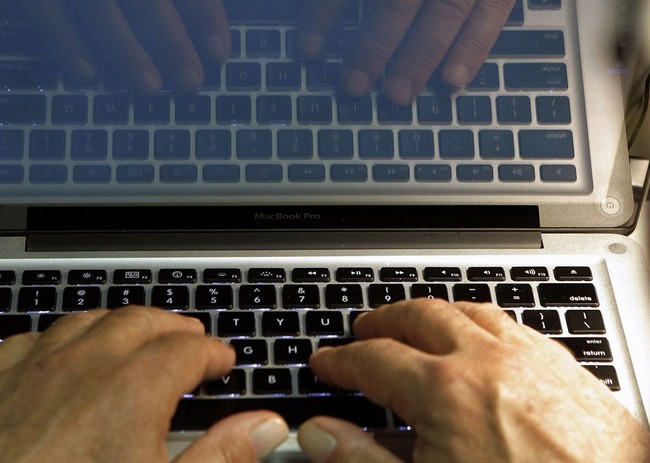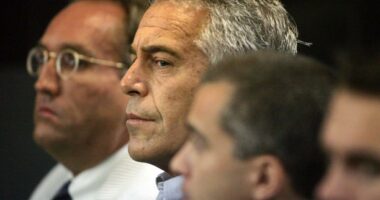
A cyber security pro warns that “our voting systems are extraordinarily vulnerable. We need to address it now — while we still have a chance — because after Election Day, it’s going to be too late.”
Cyber security professional Monica Eaton knows what the nation’s up against in maintaining fraud-free elections because her companies attempt to do the equivalent of that every single day. But “in our professional opinion, our voting systems are extraordinarily vulnerable.”
Eaton is the founder and CEO of Chargebacks911, an anti-fraud company, and Fi911, a financial payments company, as well as chief information officer of Global Risk Technologies. She knows how hard it is to detect fraud in global finance with the constant swiping of cards all over the world and has “successfully protected over 15 billion digital transactions from every single state and territory in the United States of America—and 87 countries worldwide.”
PJ Media obtained a copy of her company’s assessment of the U.S. elections, and if you were looking for a good news story about our 2024 election integrity, you might want to stop reading now.
“If you want the ‘God’s honest truth’ and I do, “nobody knows the real rate of U.S. election fraud,” she said in the election security assessment made before Joe Biden was ousted from the race. “Republicans don’t know and Democrats don’t know — and anyone who tells you otherwise is misinformed.”
Related: Video Shows a Lady Easily Faking a Ballot in Seattle. No Wonder Washington’s GOP Is Suing.
This assessment conflicts with what we’ve heard before about the integrity of our elections from the Department of Homeland Security’s own cyber security chief. Recall that Chris Krebs said the last presidential election in 2020 “was the most secure in American history.” That election featured illegal changes in the law, no signature checking, attempts to extend Election Day, blackouts, and COVID-inspired universal mail-out ballots, which invited all sorts of chicanery.
Krebs followed up with, “There is no evidence that any voting system deleted or lost votes, changed votes or was in any way compromised.”
Few believed him. Trump fired him.
Eaton, too, has doubts. No one can promise a fraud-free election.
“Let me pull back the curtain and reveal a dirty little secret about the fraud-prevention world: We actually don’t know what the real rate of fraud is, because it’s impossible to capture everything,” she says. “All we can do is mine the data, identify gaps in security, interpret the results, and offer our best estimate.”
Congratulations to our COO, @Monica_Eaton, on being named Global Leader of the Year at the 2019 Women in IT Awards London. #WomeninITAwardshttps://t.co/dIsNpCk0xa— GlobalRiskTech (@GlobalRiskTech) February 1, 2019
During the 2020 election cycle, Mark Zuckerberg and his wife poured half a billion dollars into government election offices for “COVID” expenditures. It was in effect a takeover of some local election offices to become a turnout machine for Democrats. Joe Biden turned his Executive Branch offices — a huge part of the government – into turnout machines.
The Biden-Harris Department of Justice is now suing the state of Virginia for removing 1,600 people from voter rolls who have identified themselves as non-citizens. This is after the Supreme Court once again had to tell the Democrats: No! Illegal aliens can’t vote. You can’t make this stuff up. Well, I guess you could, but you’d be censored for “disinformation” or worse.
Former Hillary lawyer Marc Elias has been suing across the country to keep voting as easy as possible. In Nevada, he tried to keep fraudulent addresses, such as bars and casinos, as legal home addresses for would-be voters.
This election, conservatives, shaken by the in-your-face skullduggery of the 2020 election, are pooling dollars to fight for fair elections. And those efforts are now being depicted by the media as “shadowy.” Well, I guess they’d know best.
The same people who are suing to make it easier for noncitizens to vote are also behind the efforts to scare off Elon Musk from paying random people from voter registration petitions $1,000,000. It’s somewhat unseemly, but is it illegal? Pennsylvania’s governor, who brought you all of that state’s lawbreaking in 2020, is now threatening Musk with a lawsuit. Get in line, Josh Shapiro.
Related: I Don’t Know Who Needs to Hear This, but SNAP OUT OF IT Before the Election!
Eaton is worried that the divisive politics here and abroad will make people desperate.
[W]e also know that our nation is deeply divided, and large numbers of people—not just here, but all over the world – would do almost anything for Biden to win, or for Trump to win. Or to stop Biden, or to stop Trump from winning. And unfortunately, this includes breaking the rules.
So what about the machines processing the ballots?
Eaton says the finance world spends trillions of dollars on cyber security, and she can’t keep track of all the fraud.
[H]ow on earth could anyone believe that the electronic systems we rely upon to track and tabulate our votes on Election Day would be more secure than our payments systems? If anything, they’re probably much worse: They’re underfunded, their cybersecurity is less-advanced, their staff is often comprised of volunteers – and perhaps most importantly, there’s no uniformity.
Each city, county, and state has its own voting system. Each interface reveals a gap. Bad guys live for the gaps. And “the more gaps, differences, and points-of-access that an electronic system has, the more vulnerable it is to fraud.” Worse, since most of the counting is done on one day, “It can be a recipe for disaster.”
The stakes couldn’t be higher. Eaton says, “I can’t overstate how dire the situation is: If the American people conclude that our voting process is fundamentally unfair, then the bedrock on which this country was built will falter.” And that means, “You can’t have a democracy if the people don’t trust the voting!”
“I’m not speaking out as a Republican or a Democrat; I’m speaking out as an American. No country can expect to progress if they choose to repeat past mistakes,” she concludes. And of course, she’s right.
Here’s what this cyber professional suggests the government do to try and stop the sacking and hacking of our IT voting systems.
- A dedicated, bipartisan team of cybersecurity experts to oversee national elections
- A cyber-response team to react in real time to digital threats
- Leveraging the latest technological advancements to safeguard the integrity of our election system
- Greater uniformity in statewide/national voting SOPs
- Increased transparency in the collection and tallying of the votes
- A process for the American people to verify that their ballots were accurately recorded.
The DHS predicts a cyber attack on Election Day, but Jen Easterly, the director of the Cybersecurity and Infrastructure Security Agency, told CBS News that “election integrity has never been more secure.”
Related: These Are the Last People Who Should Be Lecturing Anyone on ‘Misinformation’
Easterly says that it’s not “possible for malicious actors to hack into our machines in a way that would have a material impact.” She says the machines aren’t connected to the internet and can verify votes. She says pre-election testing, post-election audits, and the decentralization of the systems are a plus for cyber safety.
“Hacking can’t happen in my opinion. The perception of hacking can — and that’s what our foreign adversaries are trying to do — undermine trust in the process.”
Confidence in the system would be more easily attainable if at every turn Democrats didn’t go to court to stop even the simplest effort to tie a ballot to a voter using identification.
The left wants us to trust the process. That must be earned.
Let’s start there.







